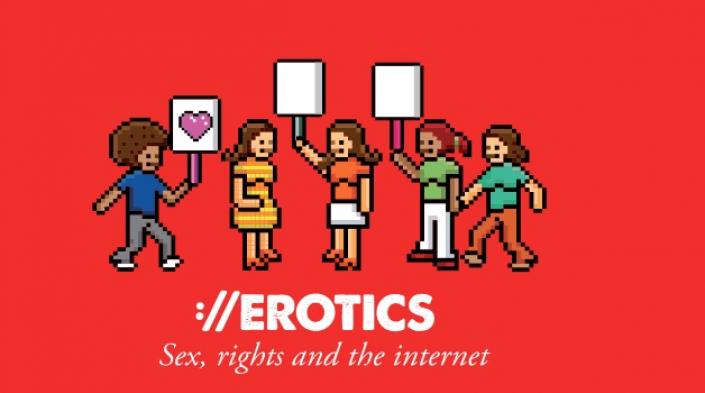
Page last updated on
What is “harmful content” on the internet? The definition is contestable, subjective and open to a range of interpretations, and the majority of interventions to combat it are mostly concerned with obscenity and child pornography. Sexual rights workers are troubled by the growing role of conservative forces – supported by religious extremists – and their attempts to encourage new legislation that would treat all online sexual exchanges as sexual predation and all adult content on the internet as pornography. This protectionist approach overshadows other important aspects of the internet that directly impact on internet users’ lives and their ability to access vital information on sexuality, sexual health and sexual rights. EROTICS is a two phase, exploratory research project carried out by APC, which aims to narrow the gap between political assumptions and a better understanding of content and “harm” based on women’s real experience of sexuality online.
Phase I
Phase I of EROTICS undertook in-depth research in Brazil, Lebanon, India, South Africa and the USA with marginalised sections of society who use the internet in the exercise of their sexual rights, including young women, transgender communities and lesbian queer activists. It took place from June 2008 to June 2011 and found that the internet has become an important emerging public sphere for democratic deliberations where rights are contested and defended. This is especially so for sections of society who have little access to other kinds of publics due to the multiple forms of exclusion and discrimination they face – based on gender, age, economic status and sexual identity. However, missing in the debate is a clear comprehension and articulation of the critical role that an open and free internet plays in the exercise of sexual rights and sexual citizenship, particularly for marginalised sections of society, and of the impact of emerging threats, limitations and regulation on this ability. The internet's potential to revitalise democratic deliberation and to transform hierarchical power structures is being threatened and constrained through increasing regulation by state and non-state actors. Notably, calls for regulation are often accompanied by arguments for the need to limit and control sexual speech, information and practices. In many countries, sexuality-related content online is filtered, blocked or censored for being “obscene” or “pornographic”.
Phase II
The second phase of the project, which is taking place from May 2012 to May 2014, aims to respond to this situation through:
-
Building a network of internet and sexual rights advocates who are able to share expertise and collaboratively respond to internet content regulation.
-
Strengthening the capacity of sexual rights, women’s rights and gender equality advocates to resist internet content regulation, through capacity building in online security, research and knowledge sharing, and alliance building with internet rights advocates.
-
Developing platforms, processes and partnerships to generate regular and sustained monitoring and analysis of the threats and impact of internet regulatory measures on the advancement of sexual rights, including an annual global monitoring survey that reports on different aspects of barriers, threats and limitations faced by activists and organisations working on a broad range of sexual rights.
-
Developing internet governance frameworks that recognise sexual rights and gender equality as key components of a free and open internet to inform policy development and debates in the area, including research and development of potential accountability models for non-state actors in this area.
Read more about the background to the EROTICS project.
Download the full report of the research findings, EROTICS: Sex, rights and the internet, or the EROTICS issue paper which provides an overview of the research findings.
| Chat Garcia Ramilo | Philippines |


